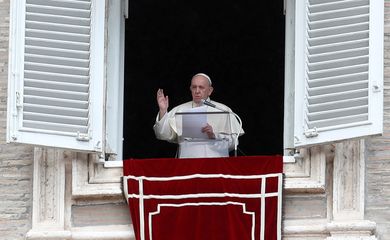Pope visits Cyprus and Greece and shows concern for migrants


Pope Francis, who starts today (2) a trip to Cyprus and Greece, intends to appeal to the situation of migrants on the borders of Europe and to counteract the countries' reluctance about the entry of people, despite the Vatican's appeals.

The number of migrants arriving in Cyprus increased by 38% in the first ten months of the year compared to 2020.
The pope is expected to address the issue of migration, as well as the division of Cyprus, when he arrives in Nicosia today for the first leg of a five-day visit.
The trip also includes a visit to the Greek island of Lesbos, which the pope already visited in 2016, having, at the time, promoted the transfer, through the Vatican, of a group of Syrian refugees.
Pope Francis will organize a new transfer of migrants this week: around 50 who are in Cyprus have been identified and will travel to Italy, Cypriot officials said.
The Vatican has not ruled out that "some migrants" who are in Lesbos could also be transferred to Italy after the Pope's visit.
In the city of Nicosia, Francis will remain at the Apostolic Nunciature, located in the buffer zone controlled by the United Nations.
The island of Cyprus has been divided since the invasion of Turkey in 1974, and only the government of Ankara recognizes the Turkish Republic of Northern Cyprus.
In a message released today and marking the 70th anniversary of the International Organization for Migration, the pope insisted that refugees are people who deserve dignified treatment, having also referred to the situation of migrants who find themselves on the borders between Belarus and the European Union.
"The migration debate is really not about migrants," Francisco said.
"It is regrettable that migrants are being used as a bargaining chip, as pawns on a chessboard, victims of political rivalries," he added.
Text translated using artificial intelligence.



